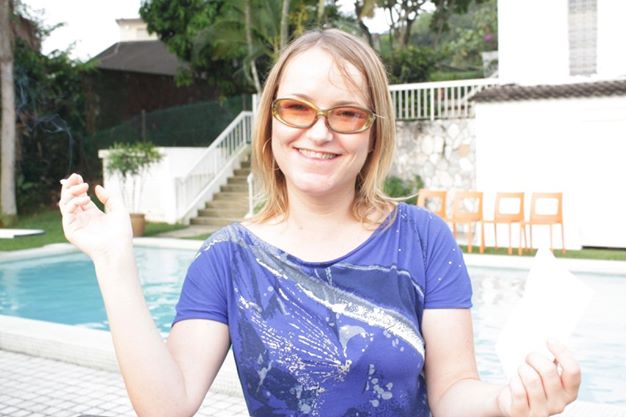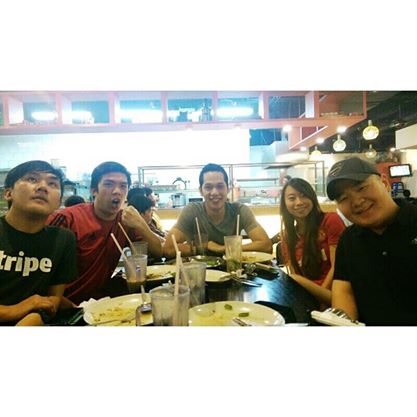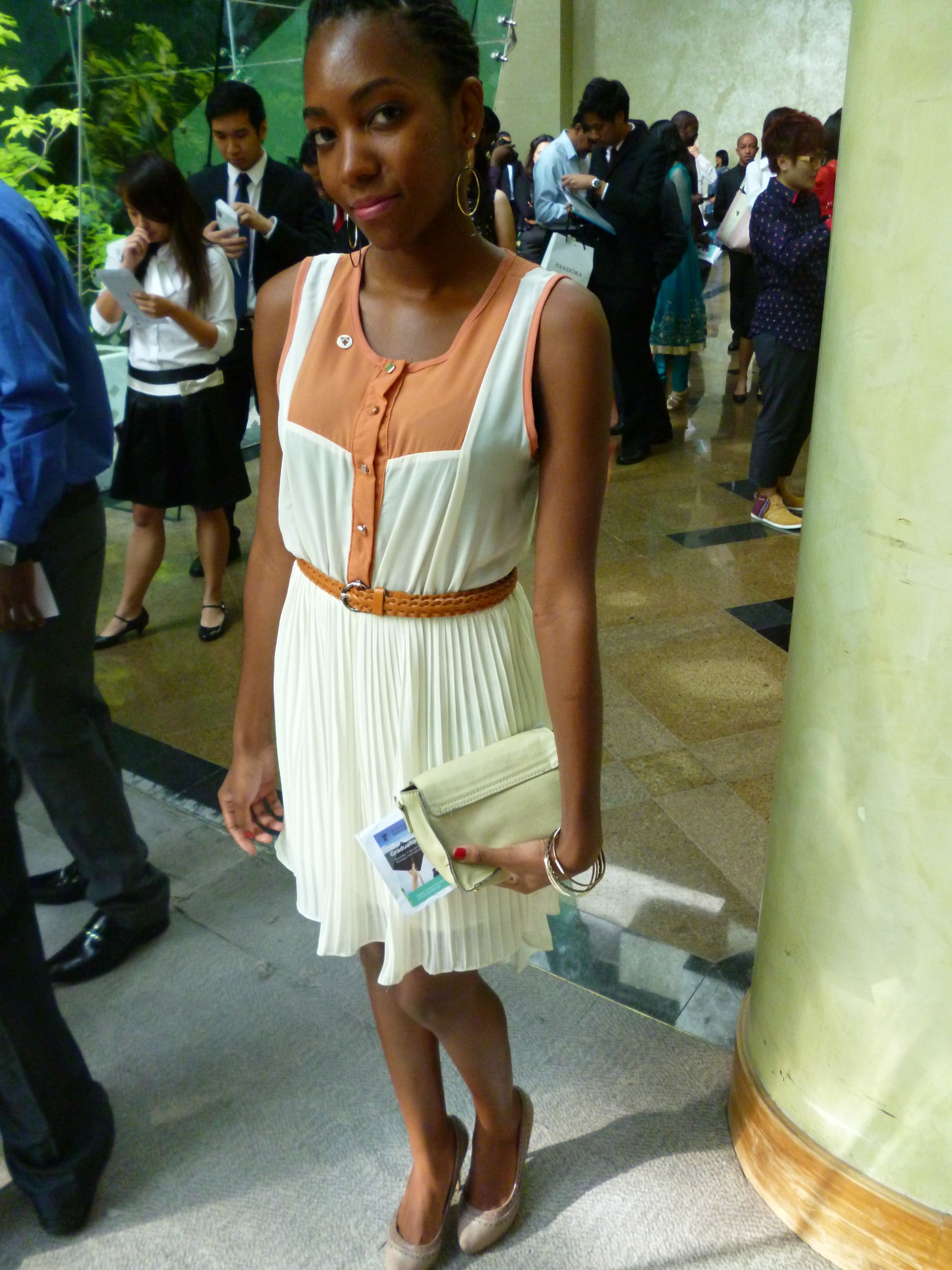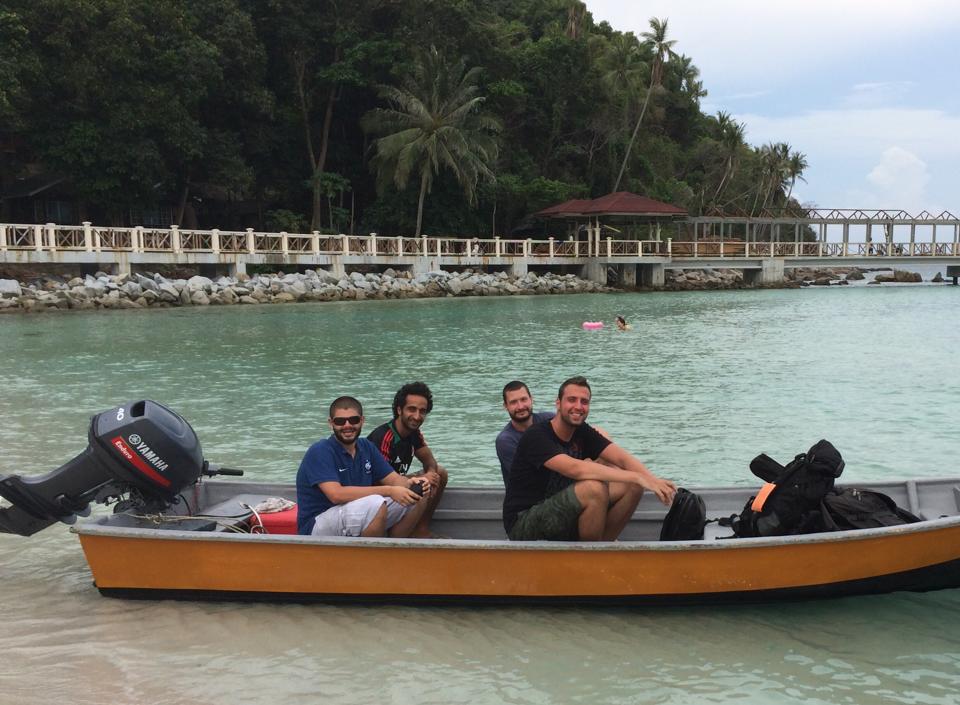#HowToLoveMalaysia: Four Expats Tell Us What Malaysia Means To Them
From discrimination to traffic jam, expatriates share some of the same frustrations Malaysians face. But they also share the same beautiful community, food and beaches that Malaysians cherish. What does Malaysia mean to expats who earn and spend Malaysian Ringgit? SAYS picks the brains of four seasoned expatriates working in Malaysia in this second instalment of #HowToLoveMalaysia.
They work in Malaysia, earn Malaysian Ringgit, and pay Malaysian taxes. Expatriates are a huge community in Malaysia who not only help grow the economy, but also share some of the frustrations and joy Malaysians face.
What does our expat community really think about Malaysia? We asked a Danish, a Vietnamese, a Syrian and a Botswanan what Malaysia means to them.
Charlotte Fenger Pedersen, a Danish in her 30s, has been in Malaysia for over 10 years.
Image via fbcdn.netCharlotte Fenger Pedersen, a Danish in her 30s, has been in Malaysia for over 10 years. Her first trip to Malaysia was as an exchange student with Help University, where she was surprised by the beauty, architecture and good food at every corner. After 6 months in Malaysia, she returned to Denmark to study, but she had already fallen in love with Malaysia. Charlotte followed her heart and came back to Malaysia to do an internship and subsequently, her Master's degree. She worked for another three years here before deciding that it's time to start a life back home, but her heart still yearned for the funny and unpredictable Malaysian lifestyle. She then booked a one way ticket to Malaysia and has been one of the most successful account managers of local digital advertising company, Rev Social, ever since.
Nguyen vu Nguyen is a 30-year-old Vietnamese who has lived the life of a Malaysian for over five years. In 2009, Nguyen was presented with an opportunity to work in Malaysia. He started out as an intern with a tech company, learning the ropes of programming. After his internship, Nguyen's colleagues threw a farewell party for him as he departed back to his home country. But that was not the last they would see of Nguyen. Months later, Nguyen returned to Malaysia with a work visa, and the rest is history.
Eyad Alama (right) from Syria, pictured with the CTO of Amazon, is a mobile developer.
Image via imgur.comEyad Alama, a 27-year-old Syrian, first came to Malaysia in 2012 as a tourist. He spent his days relaxing on the many amazing beaches of Malaysia. He initially planned to only stay for two to three months before continuing his studies in Germany. However, life in Syria grew increasingly tough and his plans fell apart. One thing led to another, Eyad ended up doing his Master's degree at Multimedia University and subsequently got a job as a mobile developer for a local startup.
24-year-old Tracey Norkjaer from Botswana works as a quality assurance analyst in Malaysia, but her life here started as a student. Tracey had never heard of Malaysia before she made the choice to study at The University of Nottingham Malaysia campus in 2008. After four years of university, Tracey returned home to Botswana. In 2013, Tracey jumped on the opportunity to work in Malaysia. Since then, she has been the only woman working in a testosterone-filled team of software engineers.
What are Malaysians like compared to the people back home?
Charlotte Pedersen: I find Malaysians to be extremely helpful, happy, and sweet people who are always keen to educate a white girl about the story of Malaysia, what to watch out for, and where to find the best things.
Eyad Alama: If I were to describe Malaysians in one word, it would be “relaxed”. People in my country get worked up over anything and everything, sometimes they would throw a tantrum over the smallest thing. In Malaysia, people are way more relaxed, they take life lightly. I find it a refreshing change than the chaotic, fast-paced life in my country.
Nguyen Vu Nguyen: I came from a culturally homogenous place and I didn’t know much about Malaysia before moving here. Most things about Malaysia took me by surprise - the diversity, the people and the food.
Do you love Malaysia? What is your favourite memory so far of your time here?
Nguyen Vu Nguyen: I am still figuring out what love means, so I wouldn’t say I love Malaysia. However, I do like it a lot. It has been an amazing journey so far here in Malaysia. I am surrounded by a wonderful group of people in and outside of work. My favourite memory of Malaysia includes good time with my local friends, good food and witnessing Malaysians coming together before and after the 13th general election.
Charlotte Pedersen: Yes, I love Malaysia. I have tonnes of good memories but the best will be my days of partying with good friends as an exchange student here. I also have fond memories of battling through tough and good times together with my colleagues. That was probably the best and biggest learning experience I have had in my life so far.
Tracey Norkjaer: During Hari Raya, I spent two days in a place called Janda Baik. I was there with some friends and we stayed with a charming local family. The family spent the whole time feeding us with all kinds of Malaysian delicacies. The food was soooo good, fresh, and made with so much heart. It really opened my eyes to how good Malaysian food can be.
Eyad Alama: Do I love Malaysia ? It's the country that allowed me to enter without a visa (something that only two other countries would allow for Syrians), gave me a Master's degree and a full time job. Malaysia gave me the best vacation of my life, and the people treat me better than how Syrians would. So to answer your question: I LOVE MALAYSIA. I don’t know where I would be if it weren't for Malaysia.
How do you express your appreciation for this country?
Nguyen Vu Nguyen: I pay taxes!
Eyad Alama: I always recommend Malaysia to everyone that I talk to, whether it's for travel, work, or study.
Tracey Norkjaer: I do my best to be respectful and open-minded about any religious or cultural practices that may be “unusual” to me.
Tell us one thing Malaysians can do to make Malaysia a better place to live in
Tracey Norkjaer: Malaysians should wholeheartedly embrace all the cultural, racial and religious differences between them.
Nguyen Vu Nguyen: Embrace your diversity.
Charlotte Pedersen: The safety, I've been snatched several times. The taxi drivers should always use the taximeter. Also, I'd like to see the government be honest and fair to all Malaysians.
Eyad Alama: When I look at how Malaysia is advancing I have no doubt that it’ll be a greater country in a couple of years. However, and this may sound trivial, the traffic here can be overwhelming and really frustrating. In my opinion, if that problem is solved, Malaysia will be a much happier place to live in.
Anything you'd like to say to our Malaysian readers?
Eyad Alama: You guys are awesome! And thanks for being such nice and accepting people. ☺
Tracey Norkjaer: You have a country blessed with rich resources and culture and that should be appreciated and conserved.
Nguyen Vu Nguyen: Your country is beautiful, your people are friendly and prideful, and not everyone named Nguyen are related.
Charlotte Pedersen: Even if I leave this country, I will always see Malaysia as my second home. This is where my eyes opened up to a different culture, where I learned great things, where I got to meet awesome people, where I had tonnes of FUN, and where I made unforgettable memories.






